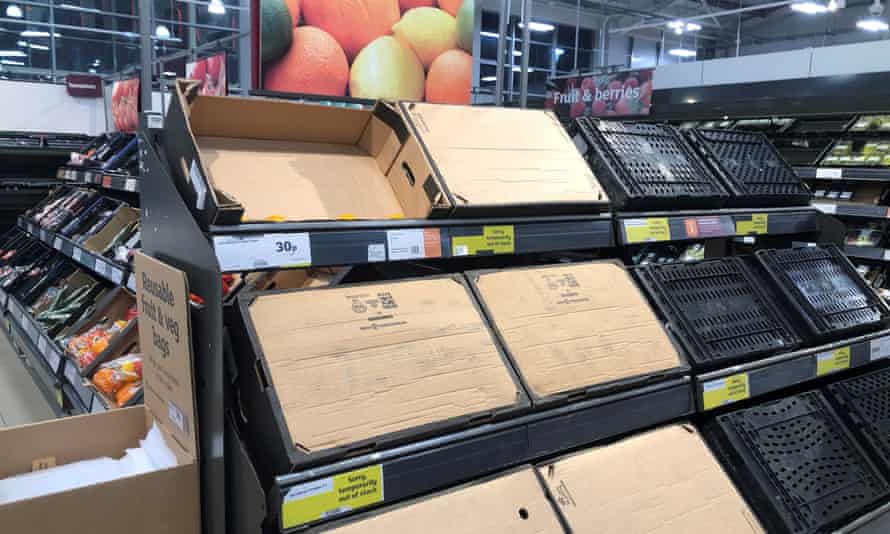The EU’s aborted attempt to trigger article 16 of the Northern Ireland protocol could be a blessing in disguise for Northern Ireland.
Its decision to pull the emergency cord on an agreement that had introduced regulatory checks on some products travelling between Britain and Northern Ireland without notifiying Dublin or London was quickly reversed.
In the blink of eye, many say it undermined the EU’s consistent commitment over the past four-and-a-half years to the fragility of Northern Ireland’s peace process.
But it also concentrated minds and crystallised something that until then had not had the airtime it deserved during Brexit negotiations – the impact the protocol would have in a politically unstable region, one least equipped to deal with the shock of systemic new trading arrangements.
Immediately after the Northern Ireland protocol was introduced on 1 January supermarkets struggled with shortages and hauliers howled in protest over the mountains of paperwork needed to get goods across the sea. But this had little traction in Westminster or Brussels where the only conversation in town was Covid.
These were mere teething problems, the Northern Ireland secretary, Brandon Lewis, told the Northern Ireland affairs committee two weeks ago. And now was not the time to be seeking an extension to the grace period on food, parcels, medical supplies and logistics.
Fast forward one week the tune has changed dramatically. Boris Johnson and Michael Gove are looking for a de facto two-year transition period and Northern Ireland is right back at the centre of national politics.
Instead of trying to work for solutions, Johnson and Gove have seized upon the opportunity of the EU’s embarrassment and gone in guns blazing demanding a two-year extension to the grace period, or else. They are cheered on by the DUP leader, Arlene Foster, and her party, who are calling for Johnson to be “the unionist we need him to be”.
While the EU has made clear the protocol will not be scrapped, issues raised by the first 35 days of its application are serious. The cross-community upset over disruption to every day supplies has made, in the words of one consumer, people felt like they are “being left behind”.
They reflect a strong feeling in Belfast that the EU and the UK gave birth to a Brexit baby and virtually walked away without trying to get public buy in or mitigate the shock of the new.
Chief vet Robert Huey told reporters before Christmas he had just “one week” to show leniency on checks on animals and food, not the six months grace period afforded to British businesses importing from the EU.
Queen’s University professor of sociology, Katy Hawyard, has warned of the “duty of care” the EU and the UK have to the people of Northern Ireland amid Brexit trauma.
Senior public figures, not directly involved in politics, in Belfast say the problems are caused by the “rigorous and inflexible” application of the protocol.

Why did British soil on plants from English nurseries have to be banned? Why were there questions marks over the right of British troops to transport equipment over the Irish border? Why was a BBC camera crew reportedly stopped on returning to Northern Ireland with camera equipment?
“Where is the creativity and the flexibility Michel Barnier promised?” asked one source.
“It’s been a bad week in Northern Ireland,” one official told the Guardian. “It’s not just the issue of graffiti. It’s the controversy over the British army, it’s the problem with food, it’s the things everyone warned – that no matter what kind of Brexit you got, there were consequences in Northern Ireland.
“The list of problems go to the issues of identity and the constitutional future of Northern Ireland are these are the issues that were at the core of the troubles,” said the official.
While the chief constable of the Police Service of Northern Ireland has called on people to step back from the brink amid a “febrile” atmosphere, a senior source said what is happening is exactly what was predicted by the PSNI given the political instability of the region.
“The cumulative impact of all of these uncertainties on a volatile region like Northern Ireland are what is at play, and now the increased debate around the border poll, issues around the long-term instability of Stormont, unresolved issues around legacy, flags, parades, all of which feed into loyalism and create this volatility and hospitable environment for more extreme views,” said one security source.
“Depressingly this is exactly what we have been saying for years. We know terrorism threats don’t exist in a vacuum, they tend to be driven by issues in the economic space,” said the source.
The police say there is no evidence of paramilitary organisation involvement in the recent graffiti threats to border guards and the former taoiseach, Leo Varadkar.
But concern of local leaders in mid-January was enough for the Northern Ireland Office to have a meeting in the second week of January with the Loyalist Community Council, which was launched in 2015 with the backing of the UDA, the UVF and the Red Hand Commando over their concerns.
And none of this seemed to be landing a response in Westminster or the EU where Covid was sapping all the political energies.
But Article 16 has swiftly changed all that.